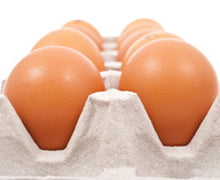
The advice from conventional medicine regarding eggs may be changing as a result of a recent study so what was once forbidden may now be encouraged. Previously, it was thought egg consumption contributed to cardiovascular disease, but the results of an observational study in China published in the journal Heart dispel that myth.Â
Daily egg consumption was shown to reduce the risk of heart disease by 12% and stroke by 26% compared to people who rarely ate eggs or ate no eggs at all. In fact, the study appears to provide further evidence that cholesterol in our diet does not alter cholesterol levels in our bodies and may even provide protection. Eggs are a large source of dietary cholesterol, but they also contain high-quality protein as well as many vitamins and bioactive compounds like phospholipids and carotenoids.
Chinese researchers studied the diets and reviewed the health of more than 400,000 people from 10 different regions between the ages of 30-79. During the span of nine years nearly 84,000 participants developed heart disease and almost 10,000 died. But those that ate an average of five eggs per week were at a significantly reduced risk of developing cardiovascular disease compared to those in the rarely/never category that ate a total of two or fewer eggs per week.
Study authors wrote, "The present study finds that there is an association between moderate level of egg consumption (up to 1 egg/day) and a lower cardiac event rate. Our findings contribute scientific evidence to the dietary guidelines with regard to egg consumption for the healthy Chinese adult."
Cardiovascular disease is the leading cause of death worldwide. In most areas of the globe that is usually from ischaemic heart disease, which results in the narrowing of the coronary arteries. But the report states that in in China, however, strokes related to cardiovascular disease are a more common cause of death. The fact the chance of stroke is reduced even more than heart disease is what makes the consumption of eggs even more important for the Chinese.



